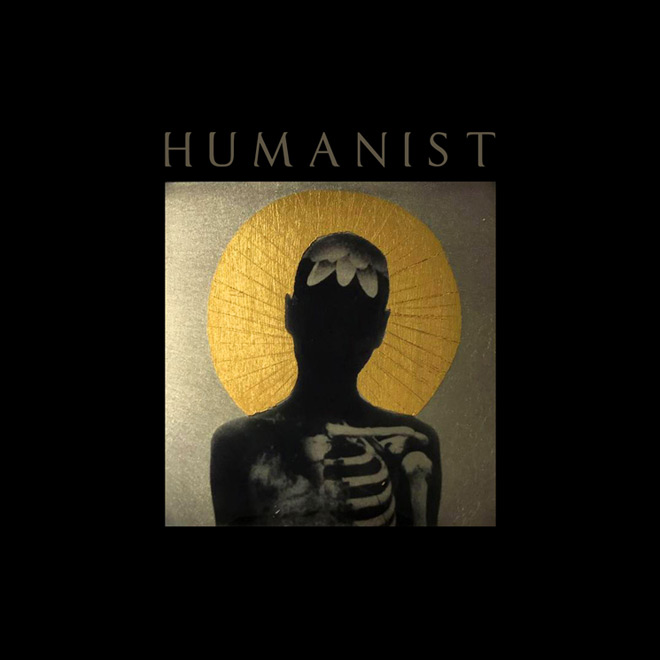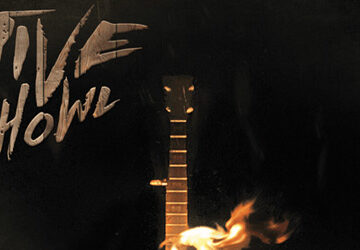
Not entirely sure who Rob Marshall is? Well, after spending the better part of two decades as a revered yet largely unknown talent, Marshall recently came to prominence assisting Rock Vocalist Mark Lanegan on his two most recent albums, 2017’s Gargoyle and 2019’s Somebody’s Knocking. That in mind, Marshall’s Humanist album features Lanegan, Dave Gahan of Depeche Mode, along with Carl Hancock Rux, John Robb, Joel Cadbury, and a host of other guest performers.
For each track, Marshall provided both the music and the idea of a track title, and the rest was filled in by the vocalists. As alluded to, the roster is impressive and the results land on several dissident genres, due as much to the distinct voices as the instrumental source material.
Curious how it all came about? The story goes Marshall first came to the idea of Humanist after watching a documentary about English Vocalist Gavin Clark. Penning several songs to cover the basic human themes that were swirling in his mind, Marshall then wrote to various vocalists to gauge their interest; all replied positively.
Complete with 15 songs, after the brief self-explanatory “Intro,” the album jumps right into it with Marshall and Lanegan. “Kingdom” offers a bit of a juxtoposition, as the lyrics refer to “riding to the kingdom” and the accompaniment of ghosts. Nonetheless, the music is heavily modern and exquisitely electrified. A nice deep grunt separates “Kingdom” from its successor, “Beast of the Nation,” which offers a thick, clanging bass guitar amidst a nice, brisk pace that keeps stride with the ‘train’ alluded to by Lanegan within the lyrics.
Gahan takes center stage with “Shock Collar,” a generally upbeat song—almost painfully so compared to both its subject matter and its neighbors on the album. This song was the subject of the latest video/single, featuring the legendary voice of the Depeche Mode frontman backed by a lone guitarist, likely Marshall himself (both on tape and in the video itself). Contrast the upbeat “Shock Collar” with “Ring of Truth,” featuring avant-garde Musician and Writer Carl Hancock Rux. The track offers a drastic change in tone, lyrically, musically, and spiritually.
Then the brief “Lie Down” sing-screams into an echo chamber, reaching back to ’90s bands like Whipping Boy, takes a turn in between these tracks. Thereafter, “Ring of Truth” has Rux channeling the languid work of David Bowie, which ends up less of a singing effort and more of a warm spoken word session. However, the use of full lyrical sentences does nothing to assuage the listener as the song descends further into nightmarish terrain. A light backing vocal near the midway point provides a sort of respite, but, as with a quick sliver of light entering and leaving a dark room, the gloom of the original plot returns. A video for the track was shot last year and released this past summer, and the visuals, while beautiful and provoking, do nothing (thankfully) to quell the anxiety introduced by the track.
Moving forward, “English Ghosts” is helmed by vocalist and tireless music critic John Robb. Briskly approaching the nine-minute mark, the track pulls frantically from the long reads of early Swervedriver, backing up as Robb spends the majority of his time repeating the title as a chorus in between whispered verses. This is while UNKLE Joel Cadbury adorns “In My Arms Again,” a raw emotional wound that crashes into a brilliantly rocking cacophony. Then Mark Gardener of Ride offers perhaps the most Rock-n-Roll effort with “When the Lights Go Out,” whose shrill guitar work helps cement the track. Keeping the album interesting, “Truly Too Late” has some wonderful vocal work from Ilse Maria, but the song overall seems to be stuck in a rut—but again, that could be the point. Canadian balladeer Ron Sexsmith takes his turn with “How’re You Holding Up,” an airy track that seemingly ends within moments of its beginning.
Of the guests, Mark Lanegan appears most often, and is also the only voice to appear consecutively, on tracks two and three after the short introduction. The disjointed roster adds to the lack of melody and continuity; the songs follow neither a discernible theme nor a particular order, and that seems to be entirely the point. For example, “Shoot Kill” features a fuzzy retro vibe, just enough to fit nicely with Thee Hypnotics’ Vocalist Jim Jones. This is whereas “Mortal Eyes” combines Rux and Cadbury, the former reciting stream-of-consciousness verses over Spy Thriller themes, while the latter offers more traditional vocal styles for the chorus as the backing tracks shift to shrieking Garage Rock.
In addition to the first two vocal tracks, Lanegan appears at the midway point of the fracas for “Skull,” a cut that is perhaps too dark to have fit within the earlier collaborations on Gargoyle or Knocking. His final contribution, which also closes the album, is “Gospel,” which takes a bit from the more recent Marshall/Lanegan efforts, and leans on some of the latter’s Bubblegum-era work. True to the title, a subtle chorus of voices joins Lanegan to close the track and ultimately the album.
More than a comprehensive registry of guest appearances, the vocalists here represent a wide array of musicians to whom Marshall has lent his talent and expertise. They return the favor here and find strength in numbers, rather than a dilution of excess. All this said, Humanist is an amazing soundscape of hope, loss, energy, depression, and most of all, human expression. That is why Cryptic Rock gives the self-titled effort 4.5 out of 5 stars.





